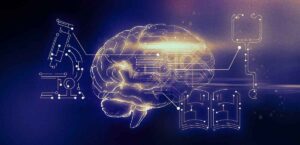Introduction
In the era of rapid technological advancement, the question of whether Artificial Intelligence (AI) can replace human intelligence is a topic of considerable debate and speculation. As AI continues to evolve, it’s natural to wonder about its potential to match or even surpass the cognitive abilities of humans. However, the answer to this question is multifaceted and requires a nuanced understanding of both AI capabilities and the complexities of human intelligence.
The Rise of Artificial Intelligence:
Artificial Intelligence has made significant strides in recent years, thanks to advancements in machine learning, neural networks, and computational power. AI systems can now perform tasks that were once thought to be exclusive to human cognition. From image recognition and natural language processing to complex decision-making, AI has demonstrated remarkable proficiency in various domains.
Understanding Human Intelligence:
Human intelligence is a multifaceted phenomenon that encompasses a wide range of abilities, including logical reasoning, creativity, emotional understanding, and social interaction. Unlike AI, which operates within predefined parameters and algorithms, human intelligence is flexible, adaptive, and capable of learning from diverse experiences.
The Limitations of AI:
While AI has shown remarkable progress in specific tasks, replicating the full spectrum of human intelligence remains a daunting challenge. AI systems lack the intuitive understanding, emotional intelligence, and common sense reasoning that humans possess. Despite their prowess in tasks like data analysis and pattern recognition, AI algorithms often struggle in unstructured environments or situations that require contextual understanding.

Augmenting Human Intelligence:
Rather than viewing AI as a potential replacement for human intelligence, it is more productive to consider how AI can augment and enhance human capabilities. AI-driven tools and technologies have the potential to assist humans in various tasks, from medical diagnosis and scientific research to business decision-making and creative endeavors. By leveraging AI to automate repetitive tasks and process vast amounts of data, humans can focus on higher-level cognitive functions that require creativity, empathy, and critical thinking.
Ethical and Societal Implications:
The advancement of AI raises profound ethical and societal questions. Concerns about job displacement, algorithmic bias, and the impact on privacy and autonomy are just a few of the issues that need to be addressed as AI continues to permeate various aspects of society. Moreover, the prospect of AI achieving human-like intelligence raises philosophical questions about consciousness, identity, and the nature of intelligence itself.
The Future of AI and Humanity:
As we look to the future, it’s clear that AI will play an increasingly prominent role in our lives. However, the notion of AI replacing human intelligence is both unlikely and oversimplified. Rather than viewing AI as a competitor to human intelligence, we should embrace it as a tool for collaboration and innovation. By leveraging the strengths of both AI and human cognition, we can harness the transformative potential of technology while safeguarding the unique qualities that make us human.

Conclusion
While AI has made remarkable advancements, it is unlikely to fully replace human intelligence. Instead, the future lies in harnessing the synergies between AI and human cognition to create a more intelligent and prosperous society. As we navigate the complexities of this technological landscape, it’s essential to remain mindful of the ethical, societal, and philosophical implications of AI’s continued evolution.
